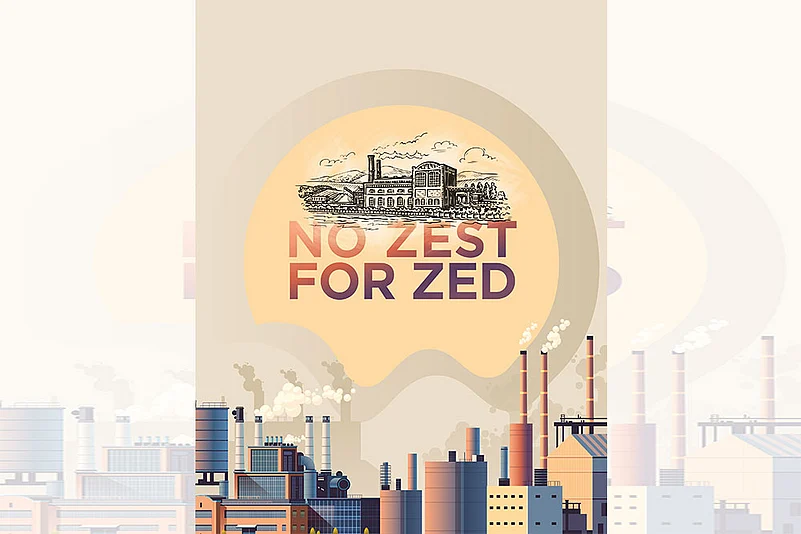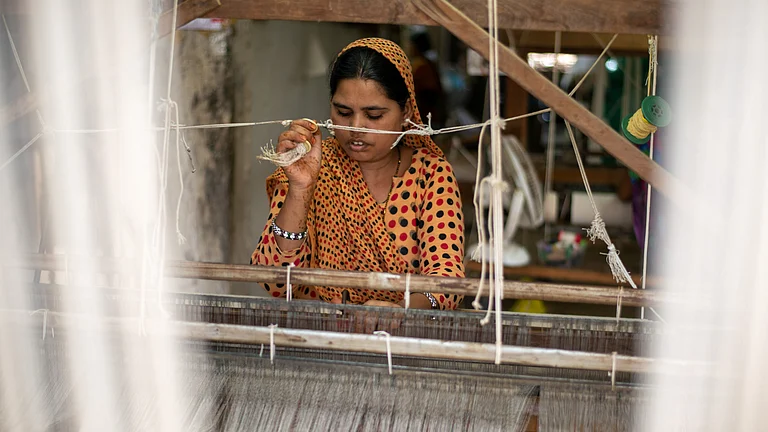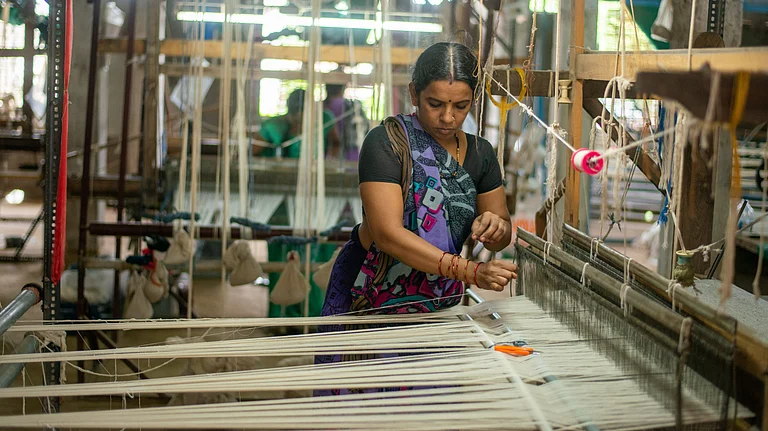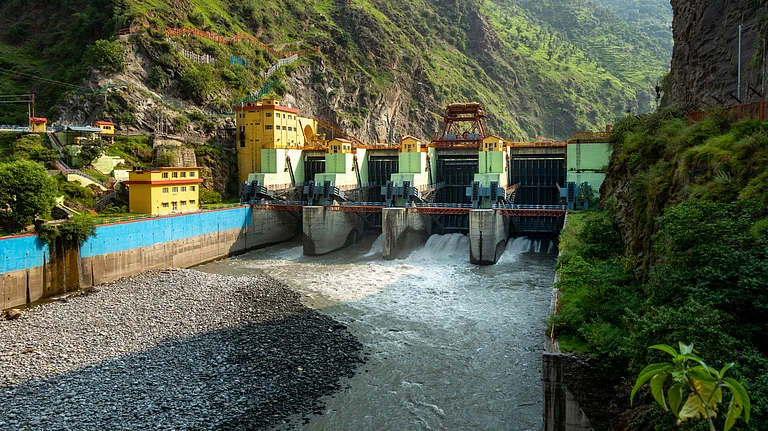Roughly 17km west of Kolkata lies a factory that makes air springs, a component used in the suspension systems of cars. The factory is owned and run by Gibraltar Airsprings, a mid-sized company named after the city on the southern tip of the Iberian peninsula.
This company has been rigorous about obtaining the latest certifications in manufacturing quality for the past two decades. A large chunk of its business comes from exports. And as such, it wants to stay on top of the requirements of ever-altering regulation.
Over the years, the company has obtained several International Organisation for Standardisation (ISO) certifications. More recently, it obtained an environmental, social and governance (ESG) certificate. In 2022, a few quality experts asked the company to obtain a zero effect zero defect (ZED) certificate to show its compliance on 20 sustainability parameters—including leadership, quality management and environment management.
Gibraltar Airsprings returned with gold—the highest certification status—meeting all 20 parameters of the ZED scheme within days. But the success Gibraltar has had is rare and does not do much in the way of the government’s efforts to make micro-, small- and medium-enterprises (MSMEs) environmentally sustainable in the long run. “The ZED certification seems to be a good start in terms of adopting sustainable practices among small and new enterprises but for a company like Gibraltar, which already has ESG certifications, it adds nothing,” says Arpan Basu, director of marketing and product development at Gibraltar Airsprings.
Yet it is these small and new enterprises that are either unaware or hesitant of joining the ZED scheme. Eight years since its launch in 2016, less than 1% of MSMEs—just over 3 lakh—have applied for certification under the scheme. When it was first introduced, the scheme was more focused on helping MSMEs achieve the ‘zero defect’ aspect of ZED’s goals. Over time, and especially after its 2022 revamp, when it became part of the MSME Champions scheme, the focus shifted to the ‘zero effect’ aspect of the scheme.
“Zero defect refers to the impeccable quality of a product whereas zero effect signifies the zero negative impact on the environment,” says Ramanand Shukla, ZED director, Quality Council of India.
He goes on to add: “With respect to sustainability, there are four parameters. One is energy management, which basically encourages MSMEs to be more energy efficient, and use alternative or renewable energy sources. The second is environmental management. Third is natural resource conservation, which is to ensure natural resources are used judiciously; and the fourth is corporate social responsibility (CSR), where the governance structure of the MSME should make sure that they take decisions looking at aspects that concern society.”
Revamp No Trigger
The revamp, however, has not triggered a rush among MSMEs to seek certification under the scheme. This is in part because of a lack of awareness about the scheme but also because MSMEs see little benefit in partaking in a certification that does not come with direct benefits. In return for accepting ZED’s parameters, MSMEs were promised concessional credit, which they have received to a large degree. But cheap credit is not what MSMEs seek when they are asked to go green.
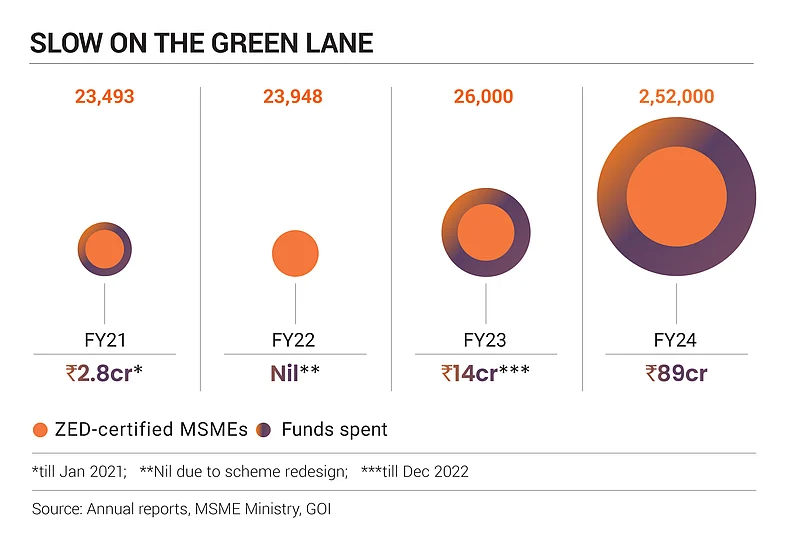
“The real need is training for workers in smaller business units for them to become sustainable. The government can help with technology upgradation and provide financial assistance,” says Saksham Surrana, director at EB Plastocomp—a plastic crate maker with a ZED gold certificate.
“The initial uptake for the [ZED] programme has been slow,” acknowledges Vinod Kumar, president of India SME Forum. He adds, “However, more MSMEs are gradually adopting the certification as awareness increases and businesses recognise the long-term benefits.”
The few MSMEs that have secured ZED certifications are mostly those that are already working with brands with an international reach, says Mehul Patel, program lead, climate at WRI India.
“If a big brand like Tata Steel is outsourcing some product from a particular MSME, it ensures sustainability compliance of outsourcing agencies. To do business with such brands, MSMEs need to get certified,” Patel adds.
The Awareness Problem
As with most greening initiatives, the primary reason for a lack of adoption is the lack of awareness. The awareness problem for MSMEs goes beyond the ZED scheme. Publicly available data indicates that just about 24% of MSMEs are aware of any ESG regulations.
Just about 36% of MSMEs say they are aware of policy measures to help make their businesses sustainable and only 4% have availed of them. Most MSMEs don’t even have all the documents they need to apply for certification, says WRI’s Patel.
But remaining unaware is not an option any longer. For many MSMEs, the sustainability of their business depends on being able to access export markets. An upcoming challenge for many MSMEs will be climate-related tariffs such as the European Union’s Carbon Border Adjustment Mechanism (CBAM).
“The government needs to mitigate the impact of such developments on small and medium enterprises,” says Rahul Ahluwalia, director of the Foundation for Economic Development, a Delhi-based non-profit.
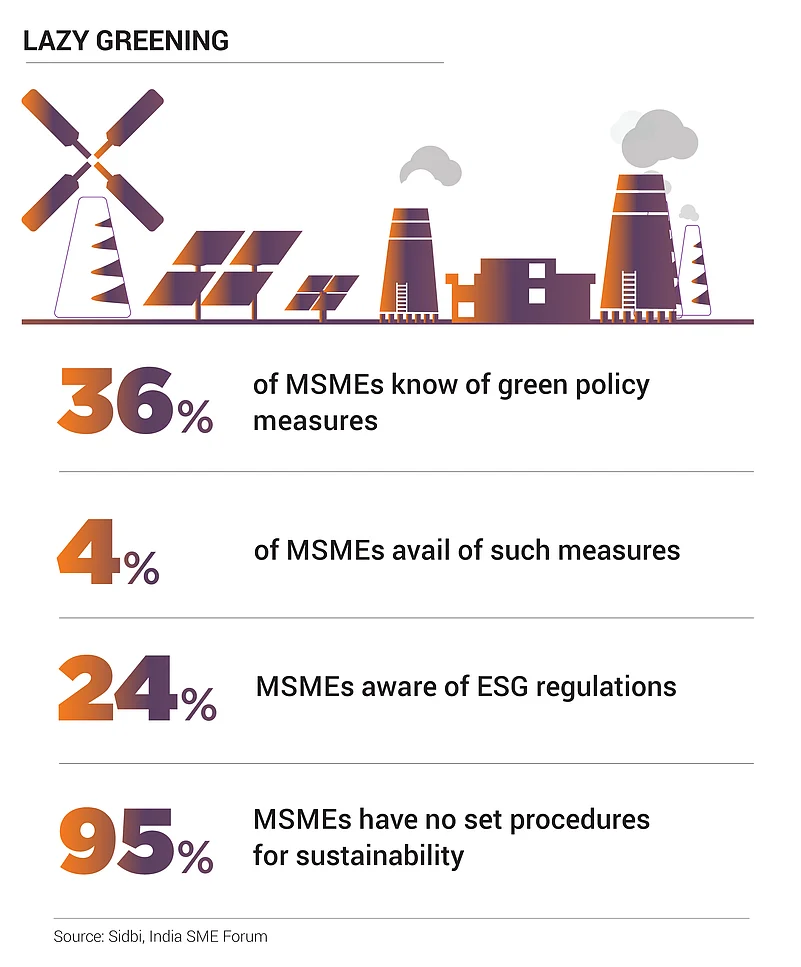
A survey by India SME Forum found that more than 95% of MSMEs have not even started establishing policy and sustainability procedures.
Experts say that in order to actually make MSMEs environmentally sustainable, there needs to be stronger outreach through public-private partnerships, a simplified regulatory framework and financial support.
A section of experts further says that sustainability has industry-specific connotations for MSMEs and a cookie-cutter approach to making businesses “more sustainable” in terms of products, processes and practices may not work. They suggest instead a cluster-specific approach that addresses specific needs of MSMEs according to sector.
For now, the few sustainability initiatives being adopted by MSMEs are guided by demand from customers or large Indian conglomerates who want their supply partners to adopt globally acceptable sustainable business practices. But for comprehensive change, government support remains necessary.
The Road Ahead
Senior officials of the Union ministry of micro, small and medium enterprises agree that the government’s efforts need to have a more “cohesive and integrated” approach in terms of implementing sustainable practices among MSMEs. They say that the plan is to enter into more collaborations between the Centre and state governments and public-private partnerships to disseminate the benefits of the scheme.
Policymakers are planning awareness camps for MSMEs where companies that have seen benefits from the ZED scheme can share their success stories.
“Listening to people from their own fraternity can help them understand the benefits of the scheme,” says the ministry official quoted above. The MSME ministry is also working with other ministries to capture the carbon footprint of businesses. Clearly, greening India's small and medium businesses is work in progress and MSMEs still have a long way to go before they become truly sustainable.
(Inputs from Kush Sharma)





